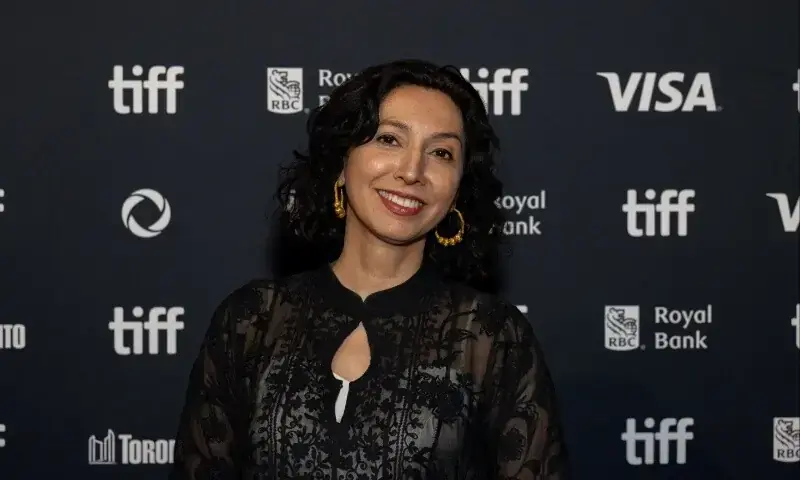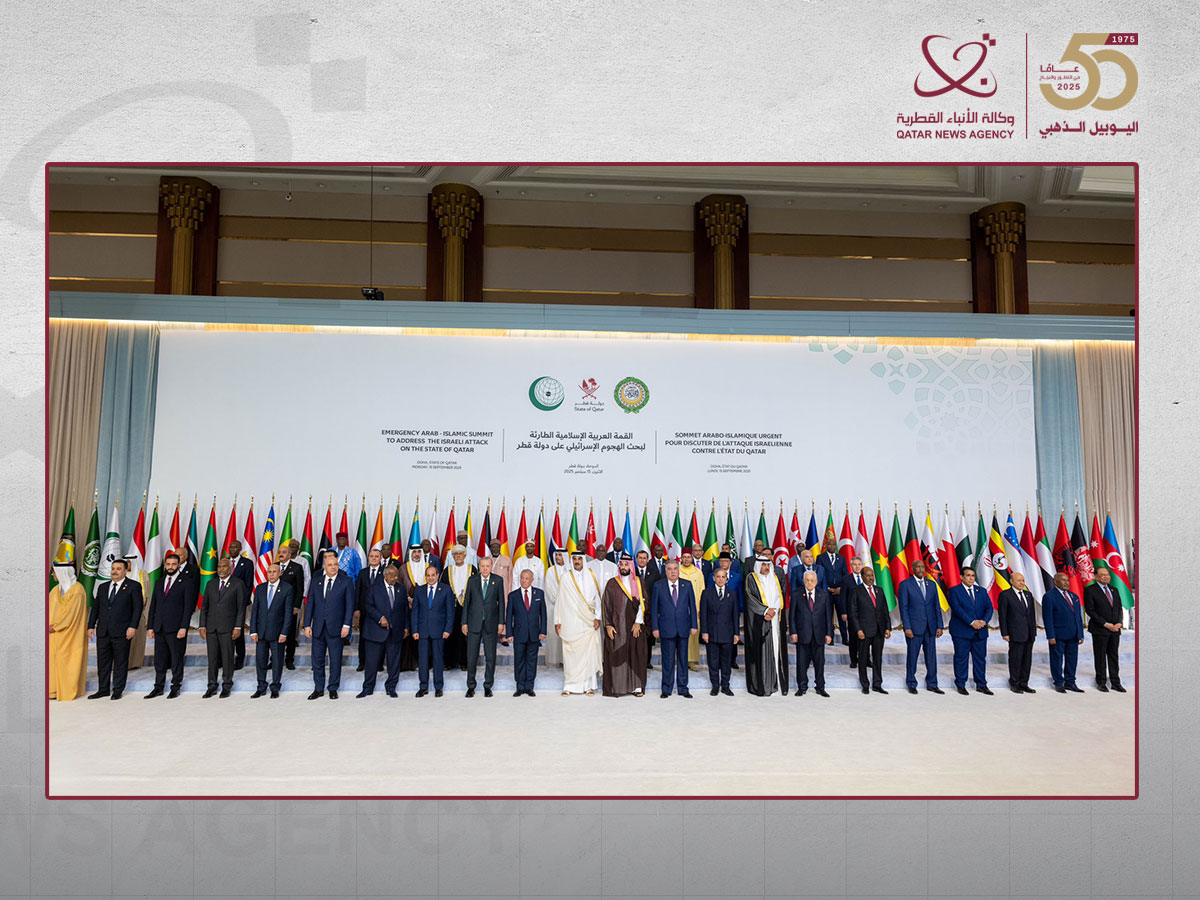By Zehra Nawab
Copyright dawn

The red carpet unfurls, a glittering stream through downtown Toronto, the camera flashes serenading the exquisitely tailored gowns and tuxedos. Cinema lovers from around the globe enliven the streets, the festival photo booth buzzing under the watchful gaze of the CN Tower.
Welcome to the 50th Toronto International Film Festival (TIFF), where every screening is sold out, and celluloid film idols are attending their premieres, fans are rushing in for autographs and the city is witnessing the arrival of the international film community: Keanu Reeves, Chloé Zhao, Annemarie Jacir, Dustin Hoffman, Hiam Abbass, A R Rahman, Park Chan-wook, Guillermo del Toro, Kaouther Ben Hania, Angelina Jolie, Riz Ahmed.
And alongside, at this prestigious global stage, two films step into the limelight, two stories from Pakistan, two teams led by female directors: Seemab Gul’s feature film Ghost School and Sana Jafri’s short film Permanent Guest.
The showcase of Pakistani directors at TIFF has been resonant these past few years. Saim Sadiq’s Joyland enthralled the Toronto audiences in 2022. Zarrar Kahn screened In Flames, and Fawzia Mirza had the world premiere of Queen of My Dreams at TIFF in 2023. Now, Gul and Jafri’s selections extend this lineage, the green and white flag being represented in Canada by two women-led films that stand shoulder-to-shoulder with the world’s best.
Seemab Gul and her Ghost School
On the road running parallel to King Street, where TIFF euphoria ensues, Seemab Gul greets me. She has just landed in Toronto, wearing a red poppy-print kurti, the flowers symbolising resilience and an ability to sprout in unexpected terrains, quite like the filmmaker herself.
Gul grew up in Pakistan, earned her MA in filmmaking from the London Film School and started her foray into documentary films. She went on to direct award-winning narrative shorts such as Sandstrom (with executive producer Jemima Khan on board), which premiered at the Venice International Film Festival in 2021 and was screened at Sundance in 2022. However, her documentary foundation is evident in the way she approaches the subject and in the filming style of her first feature. She and her Director of Photography (DOP) Zamarin Wahdat frame the narrative with the observational intimacy of cinéma verité.
“My themes dictate my characters,” says Gul. “Ghost School is a character-driven film.”
Premiering at TIFF, the Urdu-language film follows 10-year-old Rabia — a striking performance by child actor Nazualiya Arsalan — as she unravels the mystery behind her public school’s sudden closure. “This school too has become a ghost school”, she hears a man say as she reaches her educational institution the morning after summer break ends.
Explored from the innocence of this child’s perspective and her curiosity to understand what the term means, little Rabia embarks on a journey around her small fishing village, where conversations with her mother, schoolteacher, local landlord, barber uncle, fruit seller, school security guard and a posh society lady visiting from Karachi, all result in an introspective coming-of-age story.
In one of the film’s most evocative sequences, Rabia walks alongside her school’s former security guard as he recalls his own education and the fragile hope he still carries for the future. Shot in a single, unbroken take reminiscent of Abbas Kiarostami’s meditative frames, the pair drift slowly into the distance until they reach a fork in the road and wordlessly part ways. The camera holds steady, it lingers, unblinking as their paths diverge. What seems deceptively simple becomes profoundly lyrical: a moment that captures, with disarming clarity, how fleeting, tender, and vast the conversations that this little girl is having are.
The title captures both the literal and metaphorical haunting at the heart of this film. For the protagonist, the “ghosts” she sets out to uncover seem, at first, to be mystical jinns, whispered about in her community. But the real spectres are far more insidious: systemic neglect, corruption, and the men who engineer and sustain these failures. The evil spirits are not supernatural, but are human.
Gul roots this systemic failure in the intimate perspective of a child who longs above all to return to her classroom, transforming a structural crisis into a deeply human story.
The Ghost School premiere and the public screening were both sold-out shows. On opening day inside the Scotiabank Theatre, the atmosphere was hushed and reverent. The anticipation felt almost physical as the opening frame lit up the screen. As the credits rolled, the silence gave way to sustained applause in recognition of a debut that felt both intimate and universal. Critics scribbled furiously in the aisles, festival programmers exchanged nods, and the team appeared ecstatic.
“I had an audience member tell me that seeing ‘Lab pe aati hai dua’ used in such a haunting way was moving,” recalls Gul, referring to the use of Allama Iqbal’s poetry in her film. The premiere wasn’t just a screening; it was a moment of cultural reckoning, where Pakistan’s cinema claimed its place under TIFF’s bright lights with haunting power.
The film’s cast also features seasoned theatre and screen performers Samina Seher, Adnan Shah Tipu, Vajdaan Shah, Zaman Abbasi, Sarfaraz Aly, Danish Irshad, Taha Khan and Tariq Rajaa, each a solid presence on the cinema screen. The only cast member who was able to fly into Toronto was Rajaa,
“It was nothing less than an emotional breakdown for me to watch my fellow Napa-trained actors deliver A-class performances,” shared Rajaa, while crediting the National Academy of Performing Arts in Karachi for its role in bringing the story to life with authenticity and vulnerability.
Sana Jafri and her Permanent Guest
At the industry press lounge, right across from one of the main screening venues, the TIFF Lightbox Cinema, the sunlight filtering through its tall windows playfully bounces off the glimmering golden doors, through which walks in Sana Jafri.
She is at TIFF with her directorial debut short film, only the third film ever from Pakistan to be playing at the ‘Short Cuts’ section.
programme in TIFF’s 50-year-long history. But she is no novice to the festival circuit. Jafri has served as producer on films such as Joyland, which won the Cannes Jury Prize, and Yasmeen’s Element, which premiered at SXSW. She elegantly drapes a Palestinian keffiyeh on her shoulders.
The 14-minute Permanent Guest is a story told with a clear and precise vision by the director, which DOP Jaffar Raza — who is also the colourist of the film — translates into camera frames with flawless artistry. There is immense restraint in the script that Jafri has penned with Usama Lali, and the decisions she has taken from the absolute start lend to this narrative.
When the audience is introduced to the antagonist, the camera lingers not on him but on the protagonist, as she unravels in silence. The audience senses something is wrong, but what unfolds is a slow revelation of an unspoken secret that consumes those on screen. The viewer is thrown off-balance by being shown the emotional consequences before they understand their cause.
The film’s title embodies the lingering weight of trauma. A guest, by nature, is supposed to be fleeting, passing through one’s life temporarily. By pairing “permanent” with “guest,” the film emphasises the paradox of the trauma: its unwanted permanence in the inner life of the protagonist, played with delightful skill and simmering rage by Rasti Farooq of Joyland acclaim.
The antagonist, essayed with eerie ease by veteran Salman Shahid, represents a permanent fixture, inescapable despite one’s desperation to cut ties, turning what should have been temporary encounters into lifelong burdens. Seasoned actors Nadia Afgan and Ali Tahir bring textured nuance, elevating the quiet into the profound. Every frame feels deliberate, every silence harrowing.
Two films, one moment
Both these films point to a broader reality of the growing presence of Pakistani women behind the camera — be it Permanent Guest’s assistant director Hyra Basit or Ghost School’s seasoned team of assistant director Fariha Afzal and line producers Carol Ann Noronha and Shayan Saeed Meer — each carving a space for themselves in the industry.
Unlike most feature-length premieres at TIFF, Ghost School was self-financed, a fiercely independent undertaking after funding for another feature that Gul was scheduled to shoot got postponed. “I felt ready to make a film and I had a team ready to shoot, so I put in my own money,” explains Gul.
The director reflects on this with an endearing take. “I had the freedom to tell the story without executives dictating tone — this is rare,” she smiles. The film was made with the support of a solid team that included co-producers Dorothe Beinemeir and Steffen Gerdes and associate producers Samir Sue and Yousuf Rahman, who Gul says “wore 10 hats during the shoot.” But that is how a small-budget film gets made!
Once principal photography was completed, the project received grants from the Hamburg Film Fund and the Red Sea Film Fund to support its post-production. Sales for the film have been secured with the French company MPM Premium.
“Festivals like TIFF allow us to tell stories that would not fit the mould of television dramas or commercial cinema back home,” Jafri reflects. Her short was entirely crowdfunded, as Pakistan currently does not have a formal grant system for filmmakers.
The co-producers joining Jafri were Qasim Abbas, Shams Pasha and Salman Alam, who managed to raise the budget through a Kickstarter campaign supported by donors in Pakistan, a testament to a shifting landscape in local cinema and people wanting to fund ambitious and risky stories.
In the absence of local grants or state funding, filmmakers like Jafri and Gul have relied on community in Pakistan, international funds, mentors at home and abroad, and sheer determination to bring their visions to life. Platforms like TIFF become crucial in this journey, providing global visibility, credibility, and networks that can translate into future opportunities.
Yet, as Rasti Farooq reflects, recognition abroad does not always guarantee work opportunities at home; it is instead a form of access, a validation that allows these creators to keep pushing boundaries within and beyond Pakistan.
Actress Nadia Afgan, who plays an integral character in Permanent Guest, adds with a sly chuckle: “Now that I’ve made it to TIFF, I have brands calling me up for endorsements!”
Lights, camera, edit!
In Ghost School, DOP Wahdat’s camera, accompanied by the talented Faraz Alam on Steadicam, lingers with patient, poetic shots: a walk-and-talk stretching into the horizon, villagers weaving between narrow alleys, Rabia’s silent pauses as she absorbs the evasions around her. These long takes, combined with atmospheric sound design by Andrej Bako and understated folk music, channel the child’s point of view with rare tenderness.
Nazualiya Arsalan’s performance shines; her mix of determination, fear and vulnerability ranks among the year’s most memorable performances by an actor, that too a child actor.
The writing process for Ghost School was anything but conventional. “I wanted to go on set with a set of situations and let the actors react,” recalls Gul. “But my producer Carol insisted they needed a script to plan the shoot!” The idea of ghost schools had been simmering in Gul’s mind since her travels documenting Pakistan’s floods, but when funding for her scheduled feature was delayed, she chose to honour her team’s commitment and pivoted.
On a remarkably tight timeline, an entire feature was conceived and shot by this impressive team. The rapid yet rigorous process gave the film a vision while leaving space for improvisation.
The Ghost School aesthetic belongs to a lineage of auteur-driven cinema. Iran’s Abbas Kiarostami and Hungary’s Béla Tarr can be cited as key influences, marrying arthouse noir traditions with the spirit of independent filmmaking. The meditative pacing, long takes, and allegorical undertones echo Iranian New Wave sensibilities, while carving out a distinct South Asian voice. The editing further strengthens this vision. Alexander Straus, an Oscar-nominated editor, worked on the edit alongside Raluca Petre, who also edited Gul’s short Sandstorm.
For Permanent Guest, the writing process itself reflects Jafri’s roots in theatre. She physically moved through her kitchen space while penning the way her characters would interact in a scene that is at the core of her film. The result is a kitchen scene shot in a single take, charged with emotional tension that flows naturally between the actors. This level of preparation, months of storyboarding, extensive rehearsals, and careful blocking, is felt throughout the film.
Visually, Jaffar Raza’s camerawork deepens the emotional core of the story. Mother-daughter moments are filmed in close, handheld shots that heighten the tension and immediacy, while scenes with the antagonist are framed in wide static shots, underscoring the tension. This deliberate contrast itself mirrors the fractures and silences that define the characters’ world.
Sound recorded by Faiz Zaidi, sound design by Anser Soomro, original score by Abdullah Siddiqui and a well-paced edit by Saim Sadiq all complement the director’s vision in a way that truly showcases that filmmaking takes a village. And this village is an exceptionally talented one.
I asked both directors if they were aware of the Western lens on their work. Seemab Gul says that she belongs to a new generation of filmmakers who have trained internationally and are making films in Pakistan that successfully screen at global festivals. They do so, she observes, by employing a cinematic language that resonates with Western audiences without diluting the local truths at the heart of their stories.
For her part, Jafri says that the relationships with “gora [Western] film festivals is often a fraught one”, but that these accolades and screenings are required for them to be able to showcase the stories that they want to tell.
Both these films, in their process and final form, embody this balance: auteur-driven works shaped by local collaborators, nurtured by trust, and sharpened by international dialogue.
Global acclaim
This year, more than 200 titles from 75 countries screened at TIFF, each creating a space for itself in the sea of global cinema. And creating waves here is a moment of celebration indeed for the teams behind Ghost School and Permanent Guest. But it is also a declaration that deeply personal stories and fiercely intelligent filmmaking created in Pakistan can make it to the heart of one of the world’s most prestigious festivals.
Each filmmaker walks the path laid by those before them, while carving further ahead — be it Jami’s Moor (Busan, 2015), Sharmeen Obaid-Chinoy’s Song of Lahore (Tribeca, 2015), Sarmad Khoosat’s Zindagi Tamasha (Busan, 2019), Saim Sadiq’s Joyland (Cannes, 2022), Zarrar Kahn’s In Flames (Cannes, 2023), Fawzia Mirza’s Queen of My Dreams (TIFF, 2023) or Iram Parveen-Bilal’s Wakhri (SXSW, 2024).
Seemab Gul with her piercing feature Ghost School, and Sana Jafri with her lyrical short Permanent Guest are worthy additions to this list, placing Pakistan on the world map through cinema that is daring and deeply human.
The writer is an actor and director working in Canada and Pakistan. Instagram: @zehra_nawab
Originally published in Dawn, September 28, 2025
Cover image via TIFF



